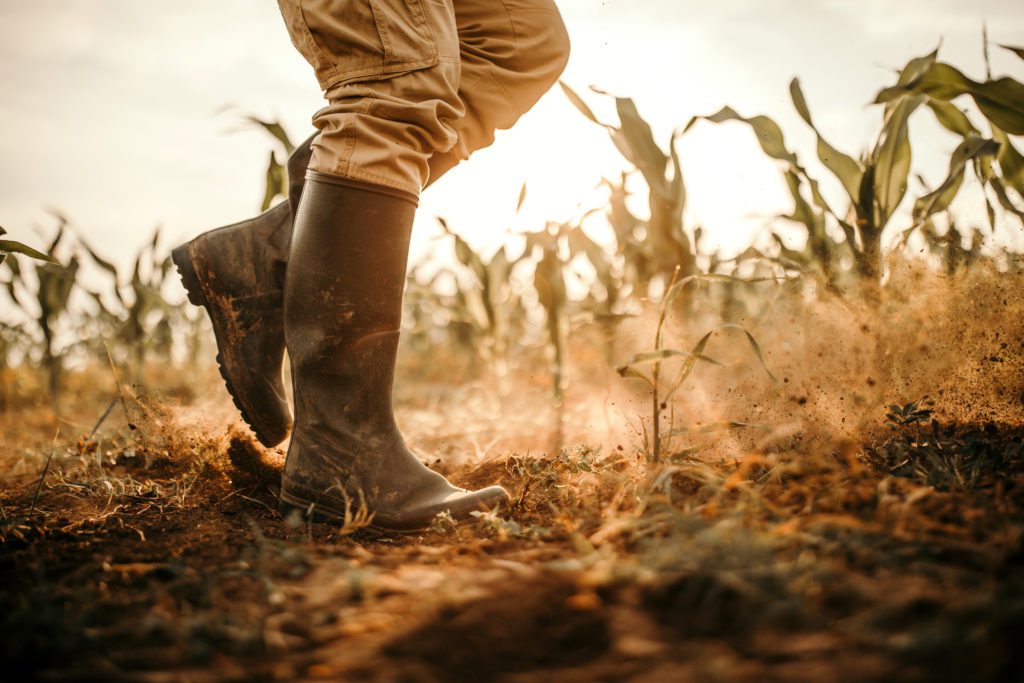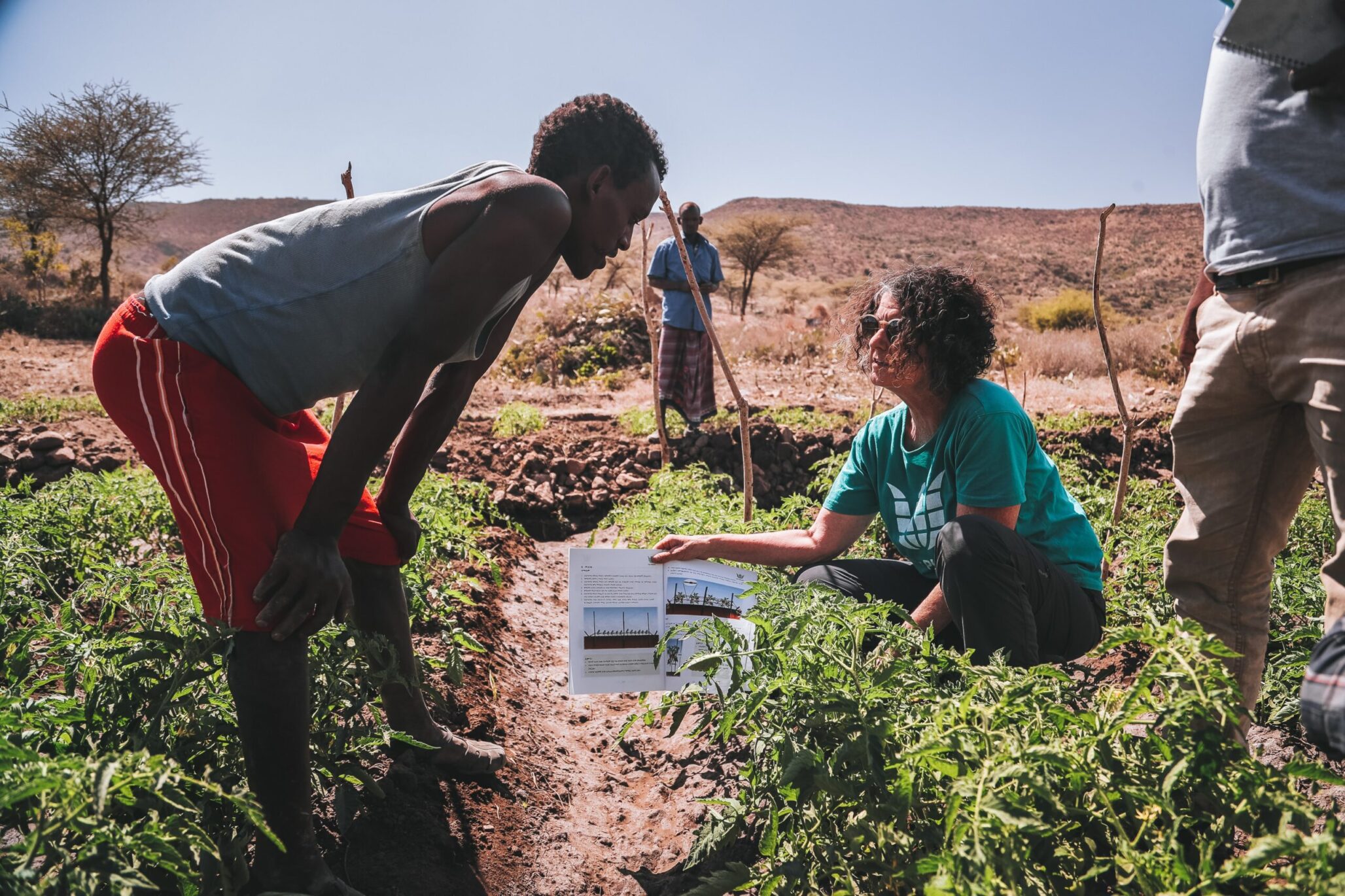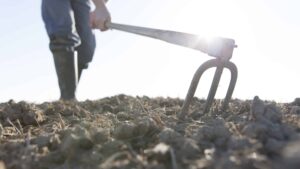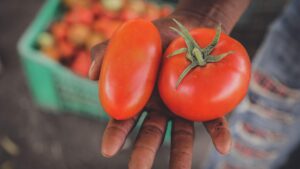“Seed is life.” It’s a motto anyone who’s worked with the International Seed Federation (ISF) will know. Seed is the basis of all life — without it, farmers across the globe wouldn’t be able to grow the food that sustains us today.
But, there’s another aspect of ISF’s motto and mission that’s equally, if not more important, to the organization: creating a world where the best quality seed is accessible to all while supporting sustainable agriculture and food security.
It’s a steep task, to say the least, but only about 10% of smallholder farmers worldwide have access to seeds with traits to withstand drought, increase yields and improve nutrition.
With many farmers lacking access to quality seeds, ISF saw a need for more boots on the groundwork. The only question left, though, was how?
The Perfect Partnership
Creating the perfect partnership might not always be easy, but when ISF’s international agriculture manager, Hélène Khan Niazi, looks back on working with Fair Planet, an NGO that’s aimed at creating success for smallholder farmers in developing countries, it seems like the pieces just fell into place.
The two women first met in 2017 in Rwanda, at the 7th Governing Body of the International Treaty on Plant Genetic Resources for Food and Agriculture, where Shoshan Haran, founder and president of Fair Planet, was invited to present Fair Planet’s work.
“This is where I first met Hélène,” Haran says. “Hélène was so enthusiastic and energetic, that she immediately suggested forming a collaboration between Fair Planet and ISF, to take our initiative to a much higher level. Follow-up meetings with Hélène and Michael Keller resulted in an invitation to present the Fair Planet initiative during the World Seed Congress in 2019 in France.”
But the real plan came into action at the United Nation’s Food Systems Summit in 2021, where ISF firmed up its commitments to seed resiliency globally.
“We decided that one of the commitments was to work on a pilot project to grow on the ground” Khan Niazi says. “For us, seed resilience is the ability for a seed system to work sustainably. We wanted to be more concrete and have an on-the-ground example of how we can help a seed system develop sustainably.”
For ISF, it seemed like Fair Planet could provide the perfect opportunity due to their experiences and expertise.
“I founded Fair Planet in 2012, as an NGO, to bridge the gap between the best seeds in the world and the poorest farmers, who mostly use low-quality seeds and inadequate agro-technical practices that result in very low yields and poor income,” Haran says. “Our mission is to develop the capacity of smallholder farmers in developing countries to transform agriculture into a profitable source of income, through access to high-quality seeds, knowledge and skills.”
Within that mission, Fair Planet has partnered with individual seed companies to determine what high-quality vegetable seeds are relevant for local markets and climates in Ethiopia and Tanzania. After trialing the seeds and varieties to identify the best local performers, Fair Planet trains lead farmers how to use these seeds through weekly visits on their own fields, together with local extension officers who gain knowledge on Good Agricultural Practices (GAP) and practical training skills.
“The lead farmers serve as key agents of change: their success attracts their neighbors to use high-quality seeds and better farming practices, leading to a strong ripple effect and a very quick spread of the technology,” Haran says. “In parallel, the local extension system passes on the knowledge to a larger circle of farmers, thus exponentially increasing the dissemination of high-quality seeds and best practices.”
“Seed choice for farmers is a key principle for ISF members,” says Khan Niazi. “We value the concept of Fair Planet because the NGO not only proposes improved varieties from renowned seed companies but also includes local varieties in their trial fields. Sometimes local varieties perform better and most important is that farmers have the possibility to make an informed choice of the varieties suiting best his/her needs.”
One example Haran gives was taken from the Fair Planet’s project in Ethiopia, called the ‘onion case’.
“We compared the agronomic and economic performance of imported hybrid onion varieties to a locally available open-pollinated one, for which the seed price was six times lower,” she says. “Although its crop yield and quality were inferior, the net income it generated per plot, was higher. Therefore, most of the farmers chose to grow this onion variety and the project provided them with training on GAP.
“To maximize the potential of the improved varieties, thousands of smallholder farmers in Ethiopia were trained in GAP in a second phase, and within five years, the project’s impact reached more than 75,000 farmers,” she says. “From growing improved vegetables and using GAP in their small plots, their yields increased more than threefold, leading to an average $470 increase in their households’ annual income, from only one production season.”
Not only that, but an external survey by the Hebrew University found the additional income enabled 96% of their families to improve their nutrition. In addition, 45% used the additional income to send their children to school, and 96% of households have saved money, allowing sustainable economic growth.
Haran equates the success of Fair Planet projects due not only to helping smallholder farmers learn to grow varieties themselves but also helping to equip the entire region with knowledge and expertise.
For the partnership with ISF, the concept would be the same, Khan Niazi says. Seed companies — hopefully, in this case, ISF member companies — would provide Fair Planet’s team with locally adapted varieties. Those seeds would be tested to see what grows well locally in Rwanda to determine what varieties Fair Planet will continue to work with and train smallholder farmers about.
However, Khan Niazi says they’re hoping to expand what seeds growers will have access to.
“At the moment, Fair Planet is focusing more on vegetables — we would like to open it as well to cereals, potatoes, pulses and other crops,” she says. “ISF is going to give more exposure to the concept of the project, but the companies are going to contract directly with Fair Planet — they’ll be leading the project on the ground, and we’re going to work with the national authorities in Rwanda to help develop the local seed system.”
The key for ISF, though, is showing these policymakers how NGOs and the private sector can work together to create a better seed system.
“We want to show the policymakers and the regulatory makers understand the people on the ground and how we can all work together,” Khan Niazi adds. “Not only that, but the private sector can bring positive things to the seed sector in a given country.”
Editor’s Note: This is part one of this article. Make sure to stay tuned for part two!













